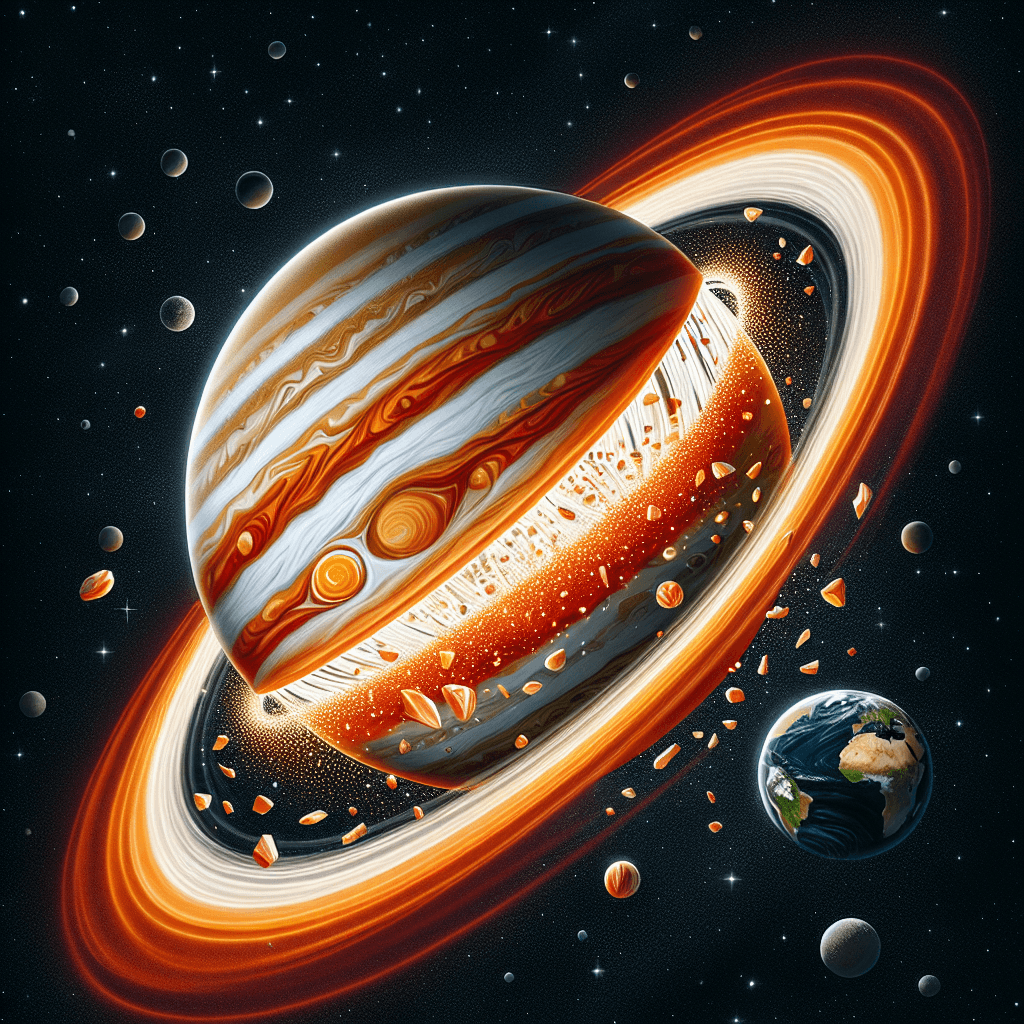Why does the planet Jupiter act as a cosmic vacuum cleaner for Earth
Our planet exists in a cosmic shooting gallery, but we have a colossal bodyguard taking the hits for us. Discover how Jupiter's immense gravity acts as a shield, protecting Earth from a relentless barrage of deadly asteroids and comets.


Too Long; Didn't Read
TLDR: Jupiter is so massive that its powerful gravity sucks in or slingshots dangerous comets and asteroids out of the solar system, clearing space debris and protecting Earth from many potential impacts.
Our Cosmic Guardian: Why Does the Planet Jupiter Act as a Cosmic Vacuum Cleaner for Earth?
Have you ever looked up at the night sky and considered the cosmic shooting gallery we live in? Our solar system is teeming with rogue asteroids and comets, remnants from its chaotic formation. Yet, Earth has enjoyed a relatively stable environment, allowing complex life to evolve. While many factors contribute to this peace, we owe a significant debt to our colossal neighbor: Jupiter. This gas giant, more than twice as massive as all other planets combined, plays a crucial role as a gravitational gatekeeper. This post will explore the science behind the compelling question: Why does the planet Jupiter act as a cosmic vacuum cleaner for Earth?
The King's Unrivaled Gravity
The primary reason for Jupiter's protective influence is its sheer size and the immense gravitational field it generates. To understand this, it's helpful to visualize gravity as a distortion in the fabric of spacetime. A small object like Earth creates a small dimple, while a massive object like the Sun creates a deep well. Jupiter, the undisputed king of planets, creates its own profound gravitational well, second only to the Sun's.
Here are a few facts to put its scale into perspective:
- Mass: Jupiter is about 318 times more massive than Earth.
- Diameter: You could fit 11 Earths side-by-side across Jupiter's equator.
- Gravitational Pull: Its surface gravity is roughly 2.5 times that of Earth's, and its influence extends far across the solar system.
This colossal gravity acts like a cosmic bouncer, fundamentally shaping the trajectories of smaller objects, such as comets and asteroids, that venture into its neighborhood.
The Mechanisms of a Cosmic Bouncer
Jupiter's "vacuum cleaner" effect isn't about sucking things in, but rather about gravitationally controlling them. It primarily protects the inner solar system, including Earth, in two distinct ways.
1. Ejection and Deflection
The most common way Jupiter protects us is by acting as a gravitational slingshot. When a comet or asteroid from the outer solar system swings past Jupiter, the planet's powerful gravity can drastically alter its path. Instead of continuing on a potential collision course with the inner planets, the object is often flung out of the solar system entirely, ejected into interstellar space. According to NASA models, without Jupiter's influence, the frequency of asteroid impacts on Earth could be significantly higher. Jupiter's gravity also played a key role in shaping the asteroid belt, preventing the material between Mars and Jupiter from coalescing into another planet.
2. Taking the Hit
Sometimes, deflection isn't enough. In some cases, an object's trajectory brings it on a direct collision course with the gas giant itself. Jupiter effectively "takes one for the team." The most spectacular and well-documented example of this was the collision of Comet Shoemaker-Levy 9 in 1994. Astronomers watched in awe as fragments of the comet slammed into Jupiter's atmosphere, creating massive, Earth-sized scars. Had that comet not been captured by Jupiter's gravity, its path could have been very different, potentially posing a catastrophic threat to us.
A Shield or a Sniper? The Ongoing Debate
While the "Jupiter as shield" theory is widely accepted, modern astronomical simulations have added a layer of complexity. Some research suggests Jupiter's role is a double-edged sword. While it clears out many long-period comets from the outer solar system, its gravity may also occasionally nudge asteroids from the asteroid belt into Earth-crossing orbits. The scientific consensus, however, still strongly leans toward Jupiter’s net effect being overwhelmingly protective. It prevents more potential impacts than it might cause, making it a crucial, if sometimes unpredictable, guardian.
Our Giant, Gassy Guardian
In the vast and often violent expanse of our solar system, Earth exists in a pocket of relative calm. Jupiter's role as a cosmic vacuum cleaner is a testament to the intricate gravitational dance that makes our existence possible. Through its immense mass, it ejects deadly comets, absorbs devastating impacts, and maintains a delicate balance that has shielded our world for billions of years. While the cosmos will always be an unpredictable place, we can look toward our giant neighbor with a sense of gratitude. Jupiter is more than just a beautiful, striped planet; it is a vital component of Earth’s long-term stability and a key reason our world is a sanctuary for life.


